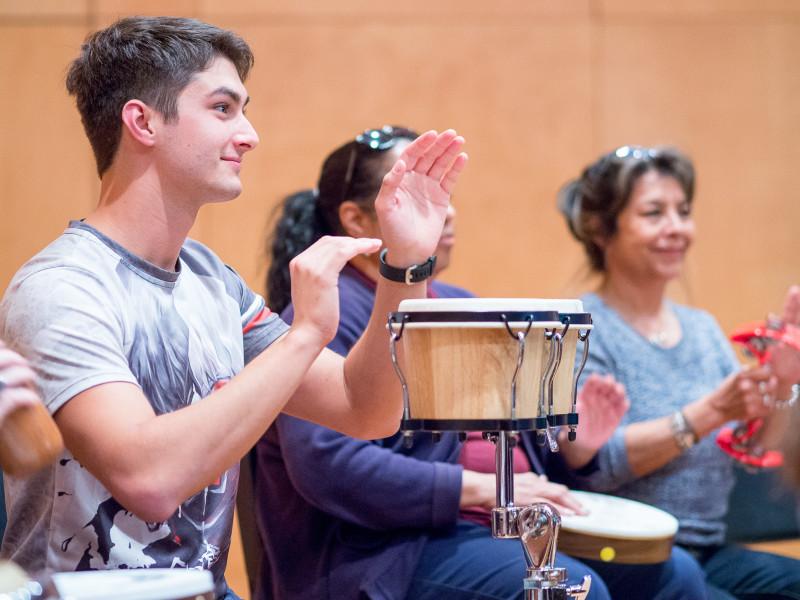President Anderson discussed the ideas leading to the formation of the Great Trinity Experiment, explaining that the event was designed to focus on the Trinity community as a whole.
“We formed an inauguration committee, and I talked to them about keeping the emphasis on Trinity as a community rather than on me as an individual. And one of the ways the I suggested we could do that was hosting a traditional academic conference talking about liberal arts, integrated curriculum and all the different strengths that we have,” said President Danny Anderson.
Anderson gave credit for the creation of the Great Trinity Experiment to the inauguration committee, who came together and decided that they wanted to do something outside the norm and change the traditional conference into something more reflective of Trinity’s values
“The inauguration committee went off and thought about things that they could do, and they proposed an “˜unconference,’ you know, let’s do this in a really different way. They thought about some of the real strengths at Trinity: the learning environment, the teaching, the small class groups, the creativity of our students, and they proposed that we flip the conference,” Anderson said. “They put out a call and asked student and alumni groups to help us become more aware of everything that is going on or could be going on here at Trinity. So I can’t claim the creative idea for coming up for the Great Trinity Experiment.”
Before the event actually took place, Anderson said that he was expecting great things from the event and wanted to see all the projects that Trinity students were showcasing as part of the experiment. He even hinted at his hope that it could become a yearly event.
“I’m looking forward to the sessions, again I’m really excited to see all the things that students are showcasing. There’s also the hope that some aspect of this could be an annual experience here at Trinity. I’m really looking forward to the Great Trinity Experiment,” Anderson said.
Adrien Lhemann, a Trinity student who helped teach a class for the Experiment, shared what the experience was like for him, beginning with describing his class, an introduction to field work in geology.
“I worked with the same group I did geology research with over the summer. So basically the lesson was based off of the research that we had done, and we used our research to come up with our lesson plan. It was a reconstruction class, five hundred million years under the sea. Basically what we did was we tried to incorporate a lot of lab material and geological images and we explained how geologists go out and do field work,” Lhemann said. “We showed them how geologists collect rock samples, measure rock layers, basically how to understand the environment we’re in to reconstruct the environment from five hundred million years ago. We basically helped our students reconstruct a reef from five hundred million years ago based on how it looks today. We’re basically giving them an introduction into how a geologist would operate in the field.”
Lhemann then discussed how his experience being a part of the Great Trinity Experiment affected him, explaining that it gave him a greater appreciation of the work professors put into their classes.
“It’s a humbling experience, honestly. You realize just how much work your professors put into preparing labs and lectures because we had to do the same. So from a student’s perspective you realize just how much work goes into preparing for a class. A lot of planning goes into it. The lesson is very fast, you realize that a lesson goes really fast once you get into it. Fifty minutes isn’t a lot, it definitely wasn’t enough for us. Your notion of time changes going from a student to a teacher, and it’s definitely a lot faster from a teacher’s perspective,” Lhemann said. “I definitely have more of an appreciation for what they do. It was a good learning experience.”







